★★★
“Where’s Lana Clarkson when you need her? Er… Never mind…”
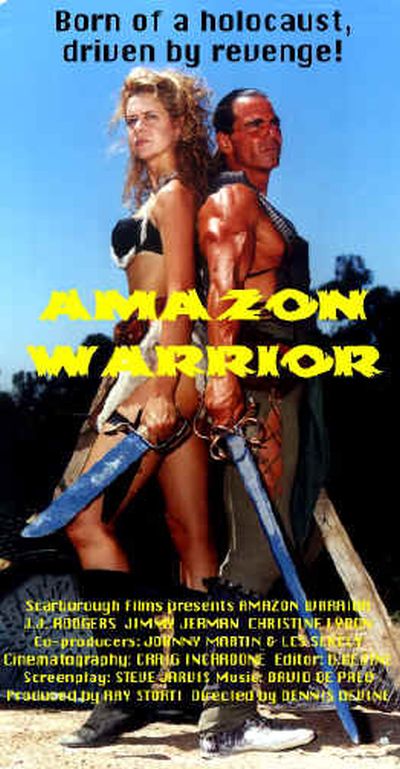 I’ve seen some painfully cheap, poorly made excuses for movies in the post-apocalypse genre in my time, and I was actively braced for another one here. To my pleasant surprise, this didn’t suck. While it certainly delivered on the first half, apparently being made on a budget of spare change off the producer’s bedside table, the film possesses a script into which some work has gone, and decent leading performances, neither being expected. Indeed, this is likely some production values away from being genuinely good, at least in a nostalgic way, harking back to the Argentinian sword ‘n’ sorcery flicks that were churned out for the video market in the mid-eighties.
I’ve seen some painfully cheap, poorly made excuses for movies in the post-apocalypse genre in my time, and I was actively braced for another one here. To my pleasant surprise, this didn’t suck. While it certainly delivered on the first half, apparently being made on a budget of spare change off the producer’s bedside table, the film possesses a script into which some work has gone, and decent leading performances, neither being expected. Indeed, this is likely some production values away from being genuinely good, at least in a nostalgic way, harking back to the Argentinian sword ‘n’ sorcery flicks that were churned out for the video market in the mid-eighties.
After the world has gone to hell in a hand-basket [and a bad digital effect], it returns to a tribal state. One of these are the gynocentric Amazons, but their territory is invaded by the marauders, an alliance of tribes under General Steiner (Storti), who perpetually needs to find and takes over new territory, to stop his alliance from splintering. You could read a political subtext into this, although that would likely be giving the script too much credit, I suspect. The only survivor of the slaughter that follows is Tara (Rodgers), who grows up, vowing revenge on Steiner and his crew. We join the vengeance in progress, with Tara now a mercenary who notches her belt for each marauder killed, but has taken time out from her busy revenging to escort two young women from one spot to another, at the request of their father (Sherer). On the way, she meets Clint (Jerman), a like-minded individual, who also had his family killed by Steiner, and so who is on his own personal mission. Or, is he?
It’s this angle which is one of the facets that keeps things interesting, with the storyline taking some unexpected twists and turns, right up to the final scene. Rogers is also effective in a role that could easily have become a collection of cliches, and the supporting performances are appropriate to their tasks. The fight sequences just about pass muster – it helps if you squint at them sideways, rather than giving them your direct attention – and it appears that after civilization has collapsed into anarchy and chaos, what remains will resemble an SCA get-together, albeit with rather more fur bikinis. The audio could also have done with some significant clean-up, not that hearing every word of dialogue is exactly crucial. Still, this comfortably exceeded all expectations, even if those were basically flat-lined going in; it retained my attention and was entertaining throughout. If you can manage your hopes realistically, not anticipating something on a par with the upcoming Mad Max remake, this should do the same for you.
Dir: Dennis Devine
Star: J.J. Rodgers, Jimmy Jerman, Raymond Storti, Bob Sherer





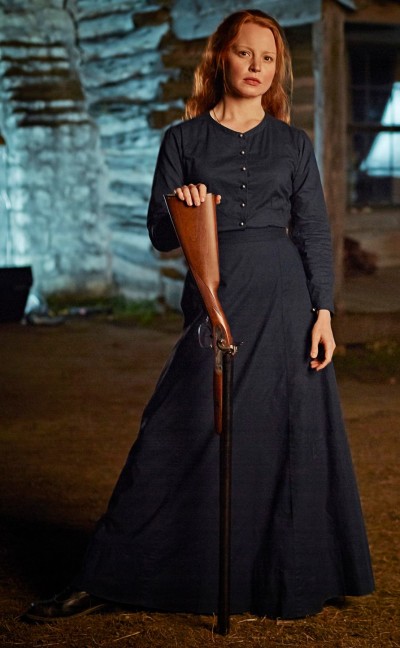
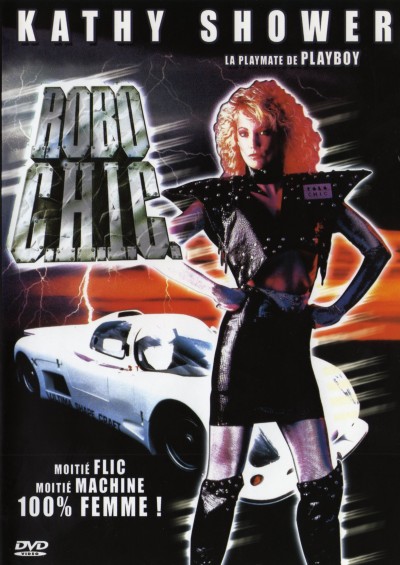
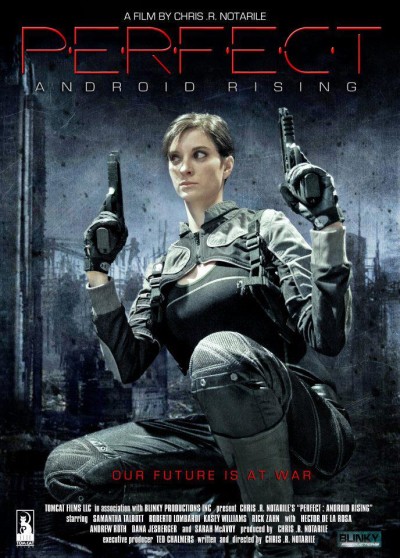
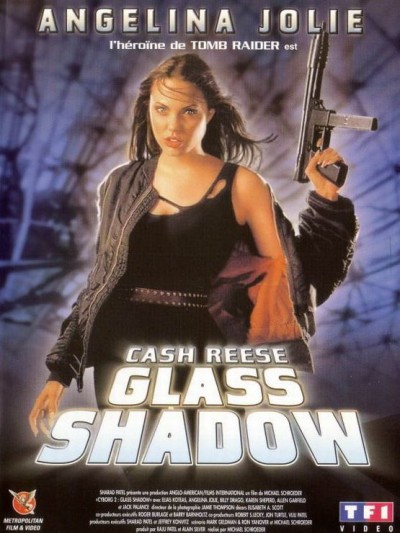
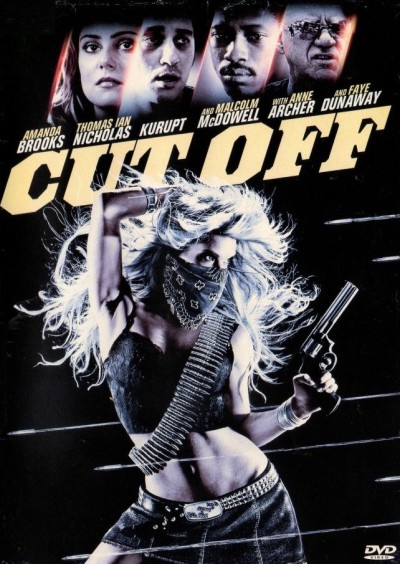
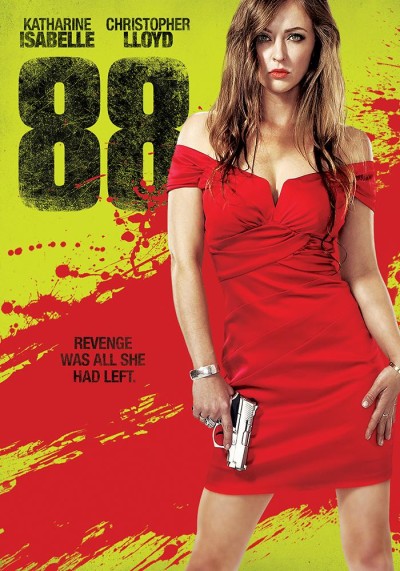

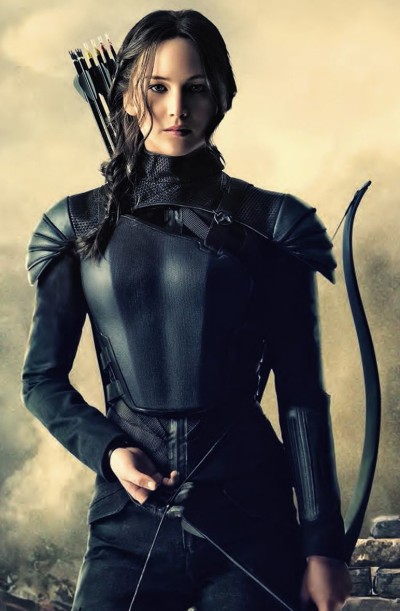
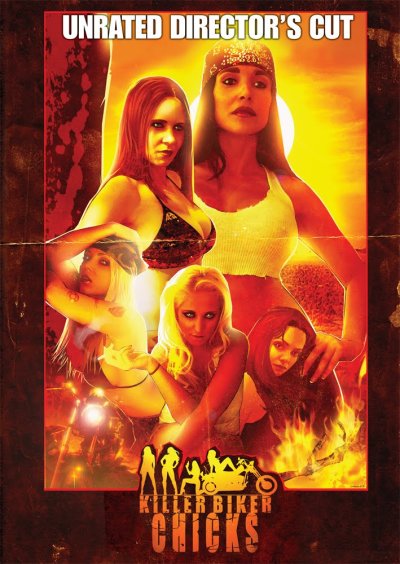 Oh, dear. I’m sure those involved with the production and their mates loved this. To anyone on the outside… Much less so. However, the problem is not actually the concept, of an all-female biker gang, which had a long, disreputable B-movie pedigree, going back at least to the sixties, with Herschell Gordon Lewis’s She-Devils on Wheels and similar films. The women here operate under the leadership of “Mother” (Gorlano), and in something apparently inspired by Sons of Anarchy, run a garage/bar that doubles as gang HQ, from where they also deal meth to passing truckers (and midgets), while taking their tops off at random intervals – in particular Baby Doll (Roth). Possible related: there may be a strip-club that’s part of it, but the film is vague on the details of their infrastructure. The movie starts well enough, with them out in the desert torturing a man who had done one of them an unspecified wrong, dousing him in gas and setting him on fire.
Oh, dear. I’m sure those involved with the production and their mates loved this. To anyone on the outside… Much less so. However, the problem is not actually the concept, of an all-female biker gang, which had a long, disreputable B-movie pedigree, going back at least to the sixties, with Herschell Gordon Lewis’s She-Devils on Wheels and similar films. The women here operate under the leadership of “Mother” (Gorlano), and in something apparently inspired by Sons of Anarchy, run a garage/bar that doubles as gang HQ, from where they also deal meth to passing truckers (and midgets), while taking their tops off at random intervals – in particular Baby Doll (Roth). Possible related: there may be a strip-club that’s part of it, but the film is vague on the details of their infrastructure. The movie starts well enough, with them out in the desert torturing a man who had done one of them an unspecified wrong, dousing him in gas and setting him on fire.